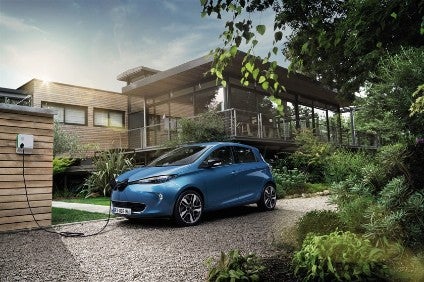
Battery electric vehicles operating in France cause two to three times less global warming pollution than diesel and petrol vehicles over their whole life cycle, according to a new study by the European Climate Foundation together with others.
Other participants were “French institutional actors”, representatives of the automotive and electromobility industry, battery makers, the energy sector and five NGOs, including Fondation pour la Nature et l’Homme (created by French environment minister Nicolas Hulot), a statement said.

Discover B2B Marketing That Performs
Combine business intelligence and editorial excellence to reach engaged professionals across 36 leading media platforms.
This advantage, the study showed, would be maintained in 2030 if the objectives of the French Energy Transition Law were achieved, and would be even greater if France extended its objectives to develop renewable energy and committed to a scenario that was 100% renewable.
“While emissions from the transport sector continue to rise, decarbonising the transport in France but also in Europe will be key if we want to meet our Paris Climate Agreement commitments,” the statement added. “The Clean Mobility Package, presented by the European Commission in November 2017, recognises the role of electric vehicles to meet the EU’s climate goals. This study… confirms that electric vehicles are a good solution for the climate even taking into account emissions from the production of batteries.”
Key role of batteries
40% of the greenhouse gas emissions produced by an electric vehicle occur during the battery production phase. Therefore, improving the environmental impacts of batteries, the study showed, would have a key role in decarbonising the transport sector and helping to reach the Paris Climate Agreement objectives.
In a period of major growth in the battery electric vehicle market up to 2030, the improvement of energy efficiency of production activities should enable the impact of the vehicle to be reduced by 20 to 25% up to 2030.
Improving the environmental impact of mineral extraction, developing sustainable batteries in terms of efficiency, weight and use, and promoting of recycling practices would also help.
Unleashing batteries’ full potential
E-mobility offers a wealth of additional environmental advantages for the French electricity system, the study said:
- The use of vehicle-to-grid services (V2G) can help integrate intermittent energies and stabilise the grid in order to phase out fossil fuels in the French power sector, either by implementing smart charging or bilateral charges (electricity is exported from the vehicle to the grid). The technical V2G potential in France of 1.3m vehicles (30% of the stock in 2030) is 45 GWh. Around 10% of this potential could cover the entire needs in terms of primary reserve between 6pm-8pm on a winter evening.
- Second life batteries for storing electricity can compete as a sustainable and convenient option for renewable energy storage. When a battery loses a quarter of its initial capacity (for example after 10 years), it can be refurbished and used as a renewable energy storage device. Renewable energy can therefore be stored when a surplus is available and then reinjected when demand is high, or it can be used for own use. If all automotive batteries entered in the French market in 2020 were used for renewable energy storage in 2030, the technical annual potential would be 8TWh, increasing to 37TWh in 2040 (providing there was enough renewable energy to be stored).
- electromobility ecosystem is a vital lever for accelerating the energy transition and the deployment of renewables.
Pascal Canfin, director of WWF France, said: “If we want to ensure a successful evolution towards 100% renewable energy, the transition of the mobility and energy sectors must occur simultaneously.
“Under certain conditions, the development of electric vehicles can happen without resorting to nuclear energy and can be a solution to accelerate the integration of renewables into the energy mix. That is why we support its development amongst a panel of other sustainable modes of transport.”
Marie Cheron of Fondation pour la Nature et l’Homme added: “This study is indicative of the magnitude of the changes we have to trigger. An electric car is not a conventional car. We have to consider it differently and change the way we use it. If the automotive industry is one of the pillars of our economy, the changeover to electromobility must be the driving force for a circular economy that is responsible as well as compatible with the climate challenge.”






